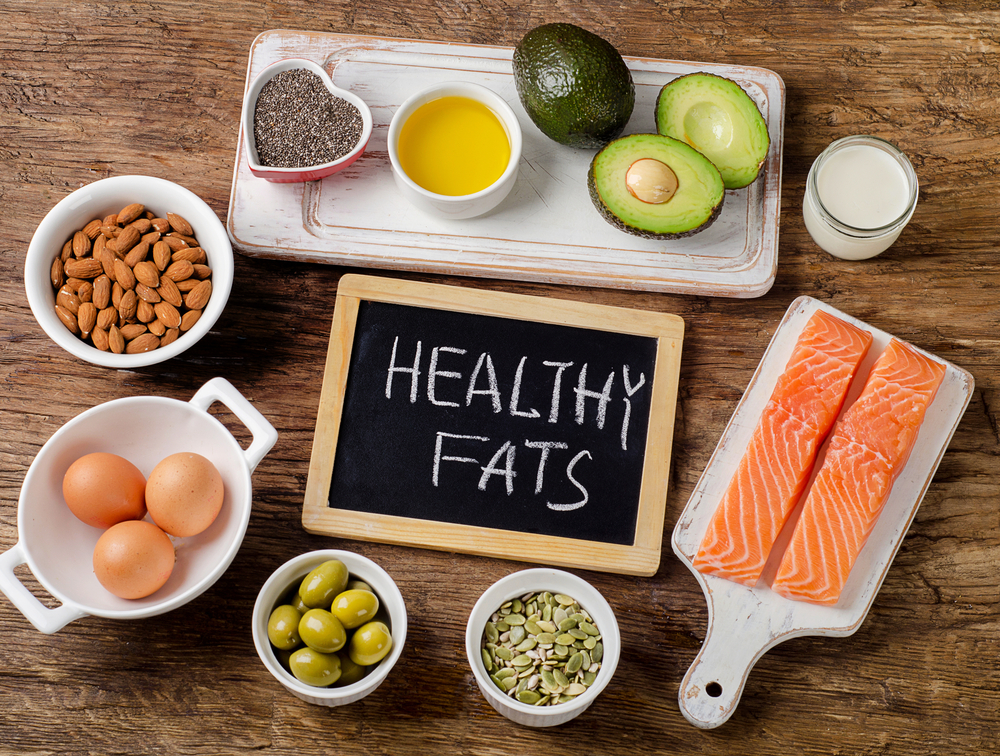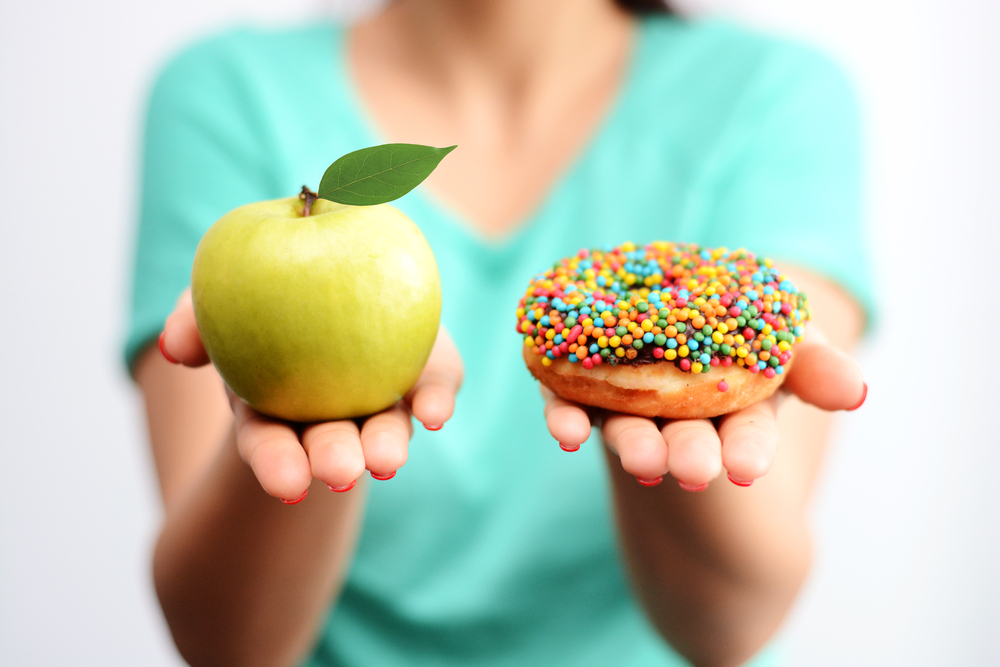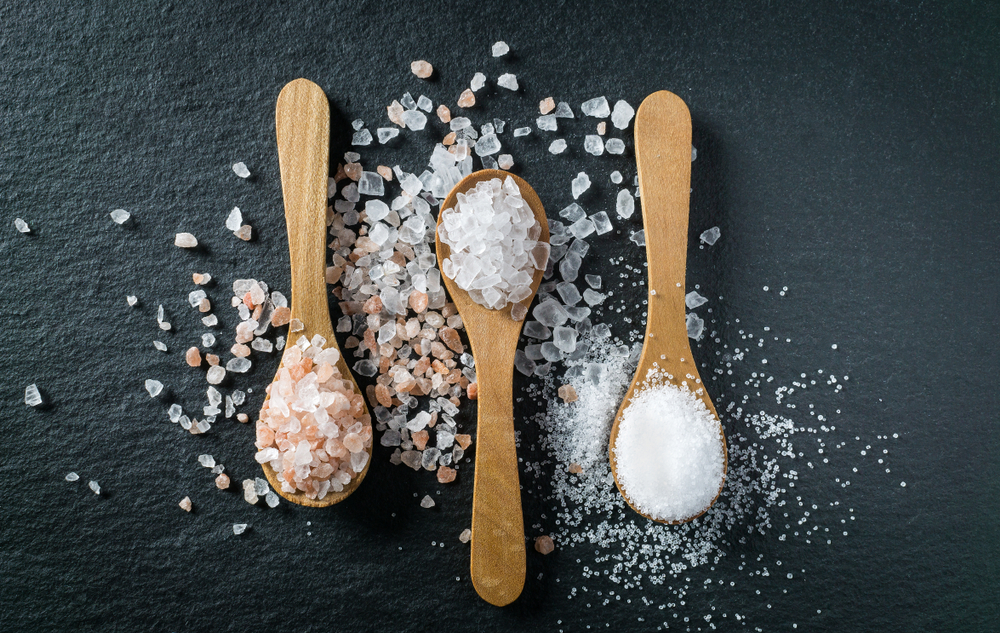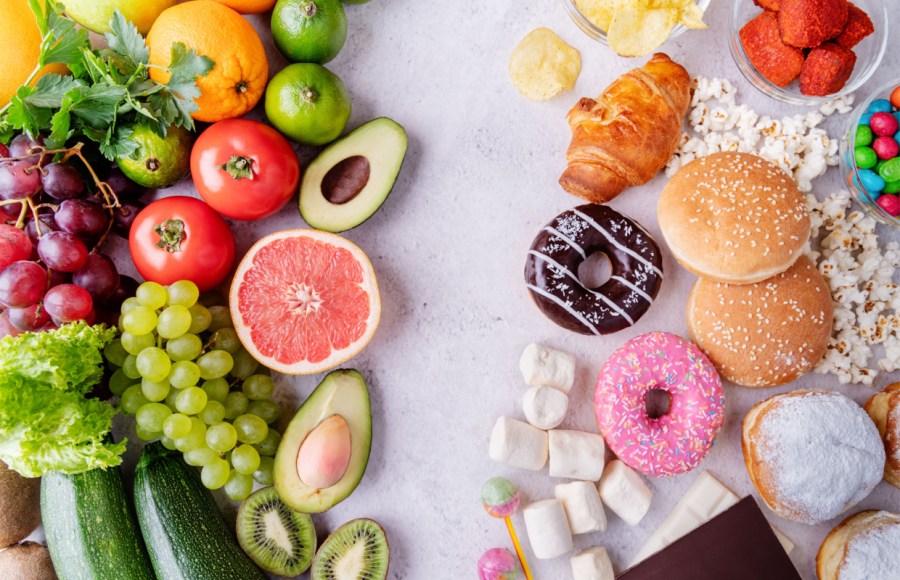Fat, sugar and salt are labelled as the enemies of healthy eating – however, by choosing unrefined, unprocessed and unsaturated versions, and eating them in moderation, you can enjoy healthy fats, sugar and salt as part of a balanced diet. Let’s take a closer look at which fats, sugars and salts can be healthy and which ones you should avoid…
Related: Balance your blood sugar: tips to stop sugar cravings
Fat, sugar and salt are classified as the baddies in modern diets. Eaten in excess they can be detrimental to your health, but kept to a minimum the trio still have a place in a healthy eating plan.
Most heavily processed foods contain unhealthy amounts of fat, sugar and salt – a ready meal is likely to contain more of these nutritional nasties compared to the same meal cooked from scratch in your kitchen.
Unfortunately, fat, sugar and salt send your taste buds into a frenzy, meaning when you have a little, you just want more! But, there are two sides to every story so we’ve demystified these diet demons to help you make the best choices.
Related: How to avoid Ultra Processed Foods (UPFs)

Fat: is it always bad for you?
Fat plays an important role in the body – it gives you energy, keeps you insulated and protects and repairs cells. It is, however, the most calorie-dense macronutrient, with nine calories per gramme. Too much in your diet can be as bad for your health as it is for your waistline. It is linked to greater risk of heart disease, high blood pressure and type 2 diabetes. But fat comes in many forms – some
Good fats to include in your diet
Unsaturated fats – monounsaturated and polyunsaturated – are the healthiest fats to include in your diet. Although they should be enjoyed in moderation, they’re considered beneficial for lowering levels of harmful cholesterol and they lessen the risk of heart disease.
Find them in oily fish, nuts and seeds, sunflower and olive oil and avocados. Omega-3 fatty acids, found in salmon and flaxseeds, are good for heart health.
Fats to eat in moderation
Fatty meat, cheese, butter, cream, biscuits and cakes all contain saturated fat which can increase levels of bad cholesterol in the blood and your risk of heart disease. Aim to eat no more than 20g of saturated fat each day.
Fats to avoid
Trans fats are found in very low levels in natural foods, but in high quantities in processed foods. Give products containing hydrogenated vegetable oils (polyunsaturated fats that have been processed) a wide berthas they are particularly bad for your health and the body struggles to eliminate them or put them to good use. Margarines, spreads, crisps, baked goods and fast food are the usual culprits.

Sugar: is it always bad for you?
Most people eat too much sugar. It’s a stimulant and addictive, so cutting down can be tricky as your body demands its sweet fix. Sugar plays havoc with your brain’s neurotransmitters – when you eat it, your brain’s reward signals begin to fire and your ability to exercise self-control is compromised.
But sugar is a great instant fuel source, particularly if you’re exercising regularly. Stick to naturally sweet foods, such as fruit, instead of gorging on heavily processed sugars.
Good sugars to include in your diet
Sugar occurs naturally in many healthy foods. Fruit and milk contain natural sugars (fructose and lactose, respectively) and these shouldn’t be restricted in your diet. The sugars found in fruit and natural yoghurt are less likely to play havoc with your blood sugar levels. A handful of berries, chopped apple or a pot of natural yoghurt with some mixed seeds makes the ideal snack.
Sugars to eat in moderation
Whether you’re a dessert person or a cupcake queen, you can still be a virtuous chef. Natural sweeteners such as stevia, agave nectar, xylitol, raw honey and coconut nectar can be used in place of cane sugar in recipes. These sweet solutions usually contain fewer calories and are sweeter than regular sugar so you can use less. Mashed bananas, dates and other dried fruits are great sugar replacements, too.
Sugars to avoid
Artificial sweeteners and fructose found in processed foods are a big no-no. Avoid fizzy drinks, biscuits, cakes, sweets and many low-fat diet foods as these can contain high levels of refined fructose. Excessive consumption can lead to insulin resistance (a symptom of type 2 diabetes), water retention, diarrhoea and poor vitamin and mineral absorption. It also puts you at risk of high cholesterol, high blood pressure and obesity.

Salt: is it always bad for you?
Adults should consume no more than 6g of salt per day – equivalent to one teaspoon. Just as with fat and sugar, salt is often demonised. Studies link high dietary levels to high blood pressure, increased risk of heart disease and stroke. But it’s an essential part of your diet, too. Every cell in your body is dependent on sodium (salt in the body); it helps regulate blood sugar.
Good salts to include in your diet
White table salt isn’t your only option for salt – there are plenty of healthier options on the market, containing the full spectrum of minerals and nutrients to enhance your health. Himalayan Crystal Salt for example is an unrefined salt containing 84 minerals (table salt has four) and is salt as nature intended.
High-salt foods to eat in moderation
You don’t have to add salt to your food to be getting too much in your diet. The more processed food you eat, the more you’ll be consuming. Everyday foods such as bread, cereal and processed meats contain surprisingly high amounts of salt. Always check food labels – high levels of salt are 1.5g per 100g (0.6g sodium).
Refined salts to avoid
Table salt, because it’s so heavily refined, contains fewer healthy minerals compared to raw salt, including the vital mineral, iodine. This is necessary to prevent degenerative illnesses, so most refined salts are fortified with iodine after processing. Do not buy ‘sea salt’ thinking you’re buying a healthier alternative to table salt. All salt comes from the sea, so the phrase is meaningless.







